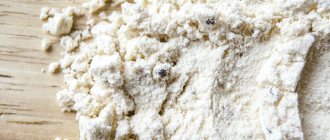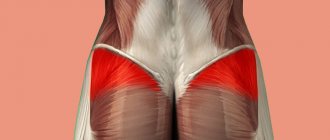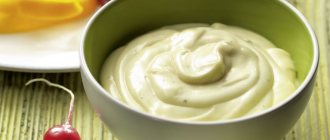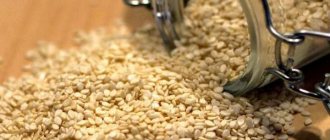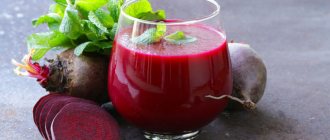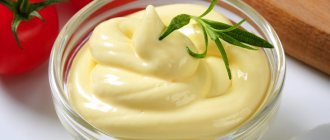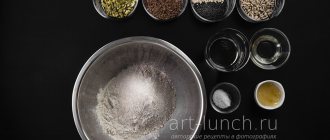Ingredients for a Great Protein Shake
Blueberry. Fresh berries sweeten the smoothie, and their high fiber content suppresses hunger for a long time and, therefore, unnecessary snacking.
Strawberry. It is an excellent source of manganese, a mineral that controls blood sugar and reduces the desire to snack. This will help you avoid ruining all your hard work in the gym with poor food choices once you're out.
Nuts. Adding nuts to the blender will not only add a serving of protein. For example, Brazil nuts are rich in selenium and zinc, while cashews are rich in iron, which is vital for energy.
Oats. Not just for oatmeal. Oats are a low-GI carbohydrate source that helps replenish your muscles with glycogen so they recover faster and grow in size. They also contain a generous dose of zinc for healthy immune function, magnesium to help your muscles relax after a workout, and dietary fiber to aid digestion and help remove cholesterol.
4 Essential Ingredients for a Post-Workout Shake
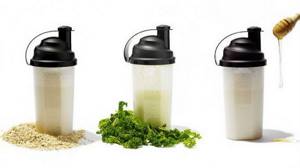
1. Skim milk. If fat loss is your main fitness goal, mixing protein powder with water instead of milk will cut calories and reduce your intake of both sugar and fat. But if you want to increase both the size and strength of your muscles, add a little milk to the mixer. Research shows that eating protein with carbohydrates during the post-workout period speeds up muscle recovery by replenishing glycogen stores faster.
2. Medium sized banana. Adding a banana to a blender when making a post-workout smoothie can do wonders for your body because they are an excellent source of vitamin B6, which plays a central role in the metabolism of fats, carbohydrates and protein. A medium banana contains more than one-third of the daily recommended value of this essential B vitamin, which is also involved in neurotransmitter synthesis and gene expression.
3. Ground cinnamon. Adding this spice will keep your blood sugar levels stable, which is key when trying to build muscle and lose fat. In fact, a study published in the Journal of Nutrition found that cinnamaldehyde, a component of cinnamon, is involved in the metabolism of visceral fatty tissue (aka your beer belly). So more cinnamon can help reduce your waist size.
4. Peanut butter. Adding a spoonful of organic peanut butter (or other nut butter)—as long as it's low in salt or sugar—will (a) change the flavor of your post-workout smoothie and (b) increase your intake of the quality fats your body needs to produce better hormones , including testosterone for muscle building. Most nut butters also contain high levels of the antioxidant vitamin E, which fights cellular damage caused by exercise.
Scientific evidence [edit | edit code ]
The results of scientific studies on the effect of protein-carbohydrate cocktails on the physical parameters of athletes and athletes confirm my observations collected over many years. Here are some examples.
- In one scientific experiment, fourteen men and women of normal weight followed a specific diet that included varying amounts of protein (in grams): a protein-free diet, 15.8, 21.5, 33.6 and 49.9, combined with 58 g of carbohydrates. . Blood tests were taken from the participants between meals. The diet that included protein provided the highest levels of insulin compared to the protein-free diet. This study indicates that the protein has an “insulin-boosting” effect.
- In another experiment, nine experienced male strength athletes were given water (as a comparison), a carbohydrate supplement, a protein supplement, or a protein-carbohydrate shake. They took these supplements immediately after completing the workout and two hours later. Immediately after the session and for the next eight hours, specialists took blood samples to determine the levels of various hormones in the blood, including insulin, testosterone and growth hormone. The most significant finding was that the protein-carbohydrate shake produced the greatest increase in insulin and GH levels. Protein works closely with carbohydrates to provide a hormonal climate that is most conducive to muscle growth.
- If you start strength training later in life, protein intake after exercise is especially important. Danish researchers asked a group of men (over 74 years of age) to drink a protein drink containing 10 grams of protein, 7 grams of carbohydrates and 3 grams of fat either immediately or two hours after each exercise session. The study lasted for 12 weeks. By the end of the experiment, the best muscle mass was achieved when participants took liquid protein immediately after the end of the workout. The idea is that the sooner you replenish your protein stores, the better results you will show.
More energy[edit | edit code ]
If you take a protein-carbohydrate shake after exercise, you will probably notice another significant point - increased energy levels. This combination of nutrients not only stimulates hormonal activity, but also begins to replenish muscle glycogen stores, thereby providing additional muscle energy. The harder you work, the more energy your muscles receive.
When protein is present in the supplement, the process of glycogen production goes faster than if you only consumed carbohydrates.
Some interesting studies only confirm this idea. In one experiment, nine men rode an exercise bike for two full hours over three separate sessions to deplete muscle glycogen stores. Immediately after each bout and two hours later, the men drank a pure carbohydrate supplement, a pure protein supplement, or a protein-carbohydrate shake.
After studying muscle tissue biopsies from athletes, experts noticed that the rate of accumulation of muscle glycogen was significantly higher when participants drank a protein-carbohydrate shake.
Why did this process go so quickly? It is well known that ingesting carbohydrates after prolonged endurance exercise promotes the accumulation of muscle glycogen. When you consume protein along with carbohydrates, your insulin levels spike. In a biochemical sense, insulin acts as a gas pedal. It activates the mechanism of glycogen formation, working in two directions. Firstly, it accelerates the movement of glucose and amino acids to cells and, secondly, it activates a special enzyme necessary for the synthesis of glycogen.
In another scientific study, a group of athletes performed a fairly intense set of exercises to burn up glycogen stores. After this, part of the group took a protein-carbohydrate cocktail, while others took a 6% glucose-electrolyte solution. Then both groups resumed their activities. Having greater endurance potential, the group taking the carbohydrate-protein supplement worked 66% longer than the second group.
In a similar experiment, eight trained endurance cyclists performed two two-hour bouts designed to deplete glycogen stores. At the end of the work and two hours later, they took either a carbohydrate-protein supplement or a pure carbohydrate supplement. the protein-carbohydrate shake included 53 g of carbohydrates and 14 g of protein, while the carbohydrate formula consisted of 20 g of carbohydrates.
After an intense strength session, taking a carbohydrate-protein liquid supplement will replenish muscle glycogen stores and help you build lean muscle mass faster.
The effect of taking a protein-carbohydrate cocktail was absolutely remarkable: glucose levels increased by 17%, and insulin by 92%. Moreover, the athletes who took it had 128% higher muscle glycogen stores than when they took the pure carbohydrate supplement.
Conclusion [edit | edit code ]
Scientific research shows that for strength athletes who work hard and intensely, the optimal combination of protein and carbohydrates after exercise is one part protein and three parts carbohydrates, or approximately 45-50 grams of carbohydrates and 15 grams of protein. The question often arises: in what form should you take a carbohydrate-protein supplement after exercise - liquid or solid? Let's look at the available scientific evidence. Researchers from Ithaca College, New York, analyzed how a regular diet, a carbohydrate-protein drink, a carbohydrate drink, and a placebo affected insulin, testosterone, and cortisol levels after completing resistance training. The main finding of the study was that drinking a carbohydrate-protein drink produced the greatest effect, but mainly in terms of increasing insulin levels. As noted earlier, insulin is important for accelerating glycogen production, so it seems that the best post-workout food is a supplement in liquid form.
Features of protein shakes
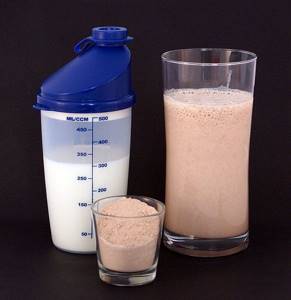
The cocktail can completely replace a meal; they are easily digested and quickly absorbed. It is not necessary to gorge yourself on meat to get the required amount of protein, especially since meat takes a long time and is difficult to digest, after such a meal there will be no time for training.- It is very important to accurately calculate your daily protein intake. For athletes it should be 1.5 -2 g. per kilogram.
- If you don't take protein shakes seriously and drink them five times a day whenever you want, then big health problems can arise; there shouldn't be an excess of protein.
- Also, do not forget about carbohydrates and other nutritional components that are no less important for the athlete’s body. Proteins should not replace the carbohydrate norm. In addition, carbohydrates help proteins to be absorbed.
- There are powdered cocktails that are simply mixed with milk, but it is better to choose natural mixtures. Protein shakes are easy to make at home using fresh ingredients.
- By adding berries and fruits to smoothies, you enrich them with important vitamins and microelements.
- Don't forget about fats, they should be an essential component of a complete diet. They are best obtained from olive oil, as it does not bind testosterone.
